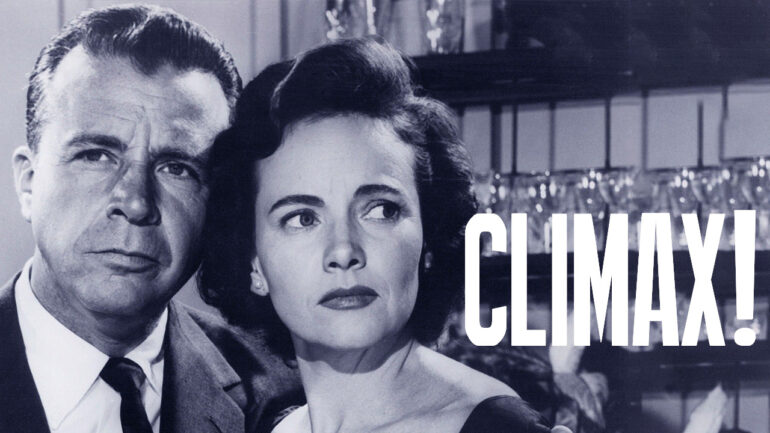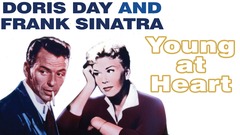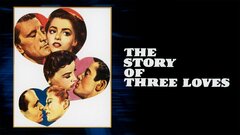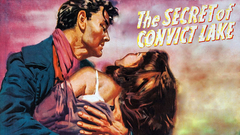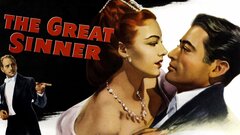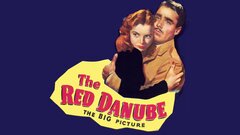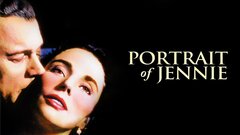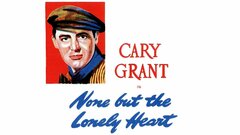A member of America's multi-generational acting dynasty, Ethel Barrymore established herself as "the first lady of the American stage" prior to following her brothers, Lionel and John, to the land of Hollywood and motion pictures. After paying her dues with smaller roles on the stages of New York and further honing her craft abroad in the U.K., Barrymore became a bona fide Broadway star with her 1901 performance in "Captain Jinx of the Horse Marines."
So popular was she during her heyday, that her good-humored admonition to persistent theater audiences wanting another curtain call - "That's all there is, there isn't any more," became an oft-quoted catchphrase throughout the 1920s and '30s. Barrymore's five-year dalliance with silent films in the late-teens was pushed aside in favor of theater and family. A chance to work with both Lionel and John lured her back in front of cameras for "Rasputin and the Empress" (1932), although not for long.
Her final, permanent return to film came 11 years later, at the behest of Cary Grant, with whom she co-starred in "None But the Lonely Heart" (1944). The role won her an Academy Award and paved the way for more turns, usually as stern but caring maternal figures, in films like "The Spiral Staircase" (1946), "The Paradine Case" (1947) and "Pinky" (1949). Immortalized as the namesake of Broadway's Ethel Barrymore Theatre, Barrymore's legacy lived on with her memorable film roles and the career of great-niece, Drew Barrymore, who carried on the family tradition.
Born Ethel Mae Blythe on Aug. 15, 1879 in Philadelphia, PA, she was the middle child of Georgina Drew and Herbert Blythe - better known as renowned stage actors Georgina and Maurice Barrymore. Boasting a family lineage that also included acclaimed stage performers like her grandmother, Louisa Lane Drew, and uncle, John Drew, Jr., she and her brothers Lionel and John would continued the family tradition as members of the country's most prominent acting dynasty. As a child, Ethel was often cared for by extended family members during her parents' frequent touring engagements, or lived at the Catholic boarding schools she attended during the remainder of the year.
She made her inevitable Broadway debut at the age of 16 in an 1895 production of "The Impudent Young Couple," alongside her uncle, John Drew, Jr. and the great American stage actress, Maude Adams. Ethel Barrymore's breakthrough came in 1897 during a mounting of William Gillette's "Secret Service" in London when she was asked to take over for the play's lead actress on a moment's notice. Despite her unfamiliarity with the role, the teenaged Barrymore performed admirably.
The attractive young thespian went on to enjoy continued success during her extended stay in the U.K., in addition to numerous gentlemen admirers - among them a young Winston Churchill, who reportedly asked Barrymore to marry him at one point. Though neither would ever publicly address their brief romantic involvement, they would remain good friends throughout the remainder of their lives. Following her triumphant return to the States, Barrymore quickly established herself as an emerging talent in several Broadway productions, culminating in a bravura performance as Madame Trentoni in "Captain Jinks of the Horse Marines" in 1901. More acclaimed starring roles on The Great White Way came in runs of "Cousin Kate," "Sunday" and Henrik Ibsen's "A Doll's House."
With older brother Lionel having already entered the film business in 1911 and younger brother John joining him two years later, Ethel dipped her toes into the still-young medium of silent movies with "The Nightingale" (1914). Remaining on the East Coast, the Broadway actress made nearly 15 pictures between 1914 and 1919 amidst her theatrical endeavors. Making no secret of her low opinion of the art form, Barrymore eventually discontinued her film career, choosing instead to focus on her stage work and family.
Unfortunately, her marriage to wealthy New York socialite Russell Griswold Colt had been tempestuous from its inception in 1909. After rearing three children with the reportedly abusive and philandering Colt, Barrymore divorced him in 1923, demanding no alimony, only child support. She would not remarry. Drawn back to film work by the intriguing prospect of appearing alongside both of her brothers, she made her first "talkie" as Russian Czarina Alexandra in the historical drama "Rasputin and the Empress" (1932), with Lionel in the other title role as the notorious mad monk and John as a fictionalized version of the exiled Prince Yusupov.
Dissatisfied by the experience, Ethel returned to the stage almost exclusively over the next decade, starring in dozens of productions, capped by a highly successful stint as the star of the drama "The Corn is Green," which began its lengthy Broadway run in 1940. After an 11-year absence from film, Barrymore returned to Hollywood at the invitation of none other than cinema star Cary Grant, to play his dying mother in the hardscrabble drama "None But the Lonely Heart" (1944). The supporting performance won the stage actress an Academy Award, an accolade that, when combined with the superior compensation, prompted her permanent relocation to the West Coast and the movie industry.
She once again played a crusty, yet good-natured matron in director Robert Siodmak's superior gothic thriller "The Spiral Staircase" (1946), which earned her a second Oscar nomination. Similar roles, in addition to two more Academy Award nominations, followed with such films as "The Farmer's Daughter" (1947), "The Paradine Case" (1947), "Pinky" (1949), "Kind Lady" (1951), and "Deadline U.S.A." (1952). She appeared with brother Lionel (as themselves) on screen for the last time in "Main Street to Broadway" (1953), a comedy-drama featuring additional cameos by a bevy of other Broadway notables, including Tallulah Bankhead, Rex Harrison and Helen Hayes.
Working more frequently in television near the end of her career - a move dictated more by economics than artistic desire - Barrymore served as host, and occasionally performed on the drama anthology "Ethel Barrymore Theater" (syndicated, 1956). She made her final feature film appearance in the romantic-drama "Johnny Trouble" (1957) as a stubborn but caring de facto house mother at a boys' dormitory, waiting for the return of her long lost son. Having suffered from a heart condition for several years, Barrymore died of complications due to cardiovascular disease at her home in Beverly Hills, CA on June 18, 1959 at the age of 79, outliving both of her famous brothers.
More than 50 years after her passing, Barrymore's legacy and influence continued as the Ethel Barrymore Theatre remained one of the last continuously operating Shubert theaters named after Broadway's greatest stars. Carrying on the family tradition, Ethel's great-niece, actress-producer-director Drew Barrymore, went on to become one of the more recognizable young faces in Hollywood.
By Bryce Coleman




